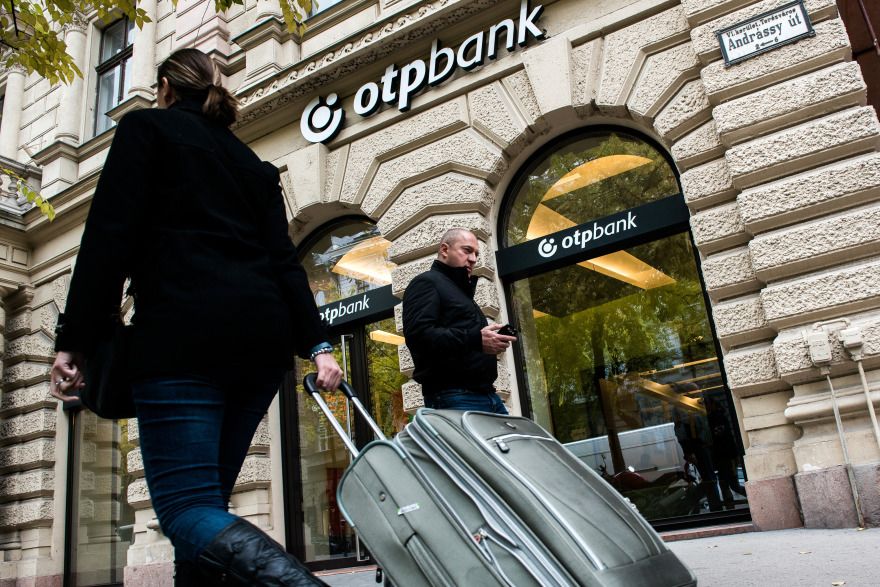(Bloomberg) — Hungarian shares and bonds tumbled after Prime Minister Viktor Orban unveiled plans for a sweeping set of new taxes to shore up the country’s strained budget.
The windfall-tax proposal is the latest in a series of developments that have alarmed investors as Hungary slips further away from its European Union allies.
Orban started his fourth consecutive term this week by declaring a state of emergency just after he pushed through a constitutional amendment allowing the government to rule by decree in situations such as war in neighboring Ukraine.
Refiner Mol Nyrt., which has seen its profit rise from selling Russian crude, plunged as much as 15% and the country’s largest lender, OTP Bank Nyrt., fell 13% at one point.
The forint neared a record low against the euro before recouping losses, while government bond yields jumped.
In a video message on Wednesday evening, Orban said that this year and next he seeks to siphon off to the budget “the bulk” of what he called the “extra profits” in sectors including banking, insurance, energy, telecommunications, large retail and airlines.
This is set to finance utility price cuts and help modernize the armed forces. Details of the plan will be unveiled at 2:30 p.m. in Budapest.
“This is very bad news for sentiment,” Michal Konarski, an equity analyst at MBank SA in Warsaw, said by email.
“One can’t properly value equities in this environment, with earnings per share being nearly unpredictable.”
Budget Consolidation
The fresh financing will help consolidate the Hungarian budget as the EU imposes an effective funding freeze against Orban’s government, which it accuses of flaunting democratic norms.
Orban’s governments have shown a preference for sectoral taxes to raise extra revenues, targeting sectors of the economy where foreign companies are overrepresented.
Such levies contributed more than 2 billion euros ($2.14 billion) to the state’s coffers last year, more than 2% of gross domestic product.
Raiffeisen Bank International analyst Jovan Sikimic said that a higher bank tax was already “in the air” as a potential fix to Hungary’s budget woes.
The development is “Orban-style politics at its best,” he said. “We have included a 75% increase in bank tax from 2023 in our models.”
Hungary may also be planning to slap Mol with a levy on Russian crude imports, according to Tamas Pletser, an equity analyst at Erste Group Bank AG in Vienna.
Such a move could politically help Orban, who is isolated in the EU for failing to back the bloc’s ban on purchasing Russian oil.
The forint dropped as much as 1% against the euro before recouping to trade 0.5% stronger at 390.71 at 1:38 p.m.
in Budapest. The yield on Hungary’s 10-year local-currency government bond increased 19 basis points to a one-week high of 7.08%.
The government’s planned tax moves risk curbing corporate investments, which will reduce economic growth, while also potentially pushing up inflation as companies seek to regain additional cash lost to the budget, according to Peter Virovacz, an economist at ING Groep NV’s unit in Hungary.
Combined with the Hungarian central bank’s recent shift toward a less aggressive monetary policy, the developments are a “bad mix for markets,” he said.
Forward-rate agreements, derivatives showing bets on Hungarian interest rates, show expectations that the central bank will hike by around 40 basis points next week, up from yesterday’s view predicting about a 30 basis-point increase.
Orban, the EU’s longest serving head of government, has clashed with the bloc over issues ranging from Russia to immigration and the rule of law.
The tax moves are a reversal from the past few years when Hungary tried to put on a more “business-friendly” face, MBank’s Konarski said.
“Now, everything is lost and we should expect extra premium applied to the cost of equity.”
(Updates with more analyst comments and charts)
More stories like this are available on bloomberg.com
©2022 Bloomberg L.P.











